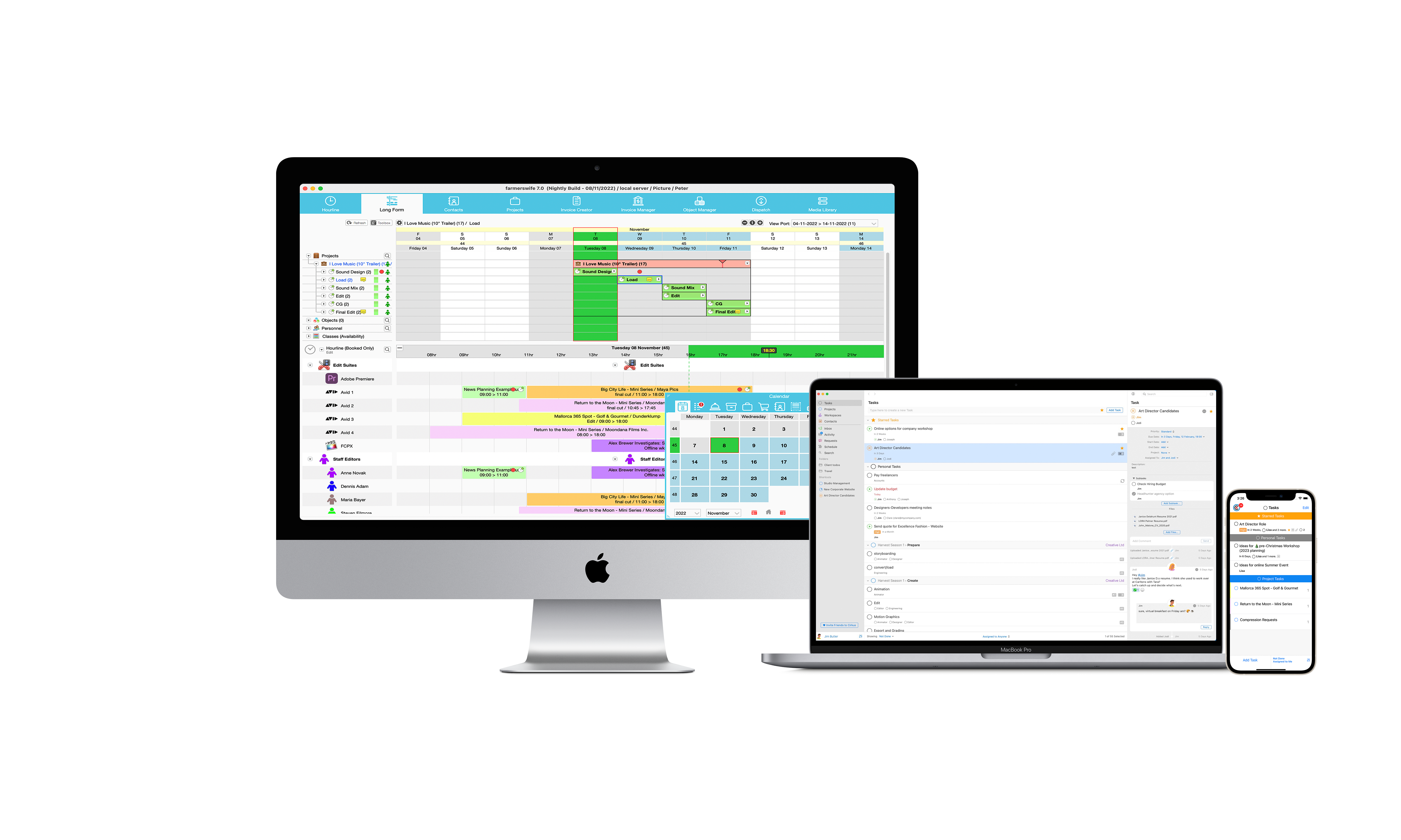In the world of marketing, staying organized and efficient is paramount to success. As marketing strategies become more complex and multifaceted, the need for effective project management becomes increasingly apparent. This is where project management software, such as Cirkus and farmerswife, plays a crucial role. In this blog post, we will explore the significance of project management in marketing, highlighting its importance for marketing agencies and teams alike. Moreover, we will delve into the key features of successful project management in marketing, address common challenges, and outline the five phases of the marketing project management process.
Understanding Project Management Use in Marketing
Project management for marketing involves the planning, execution, and monitoring of various marketing initiatives and campaigns. It encompasses tasks such as content creation, campaign development, social media management, and more. With the dynamic nature of marketing, project management becomes indispensable for ensuring that deadlines are met, resources are utilized efficiently, and objectives are achieved.
The Importance of Project Management for Marketing Agencies
For marketing agencies, where multiple clients and projects are juggled simultaneously, effective project management is the backbone of operations. It allows agencies to streamline workflows, allocate resources effectively, and deliver high-quality results to clients on time and within budget. Project management for marketing agencies involves not only coordinating tasks and deadlines but also ensuring creative assets align with client objectives and brand guidelines.
Project management software tailored specifically for marketing agencies, like Cirkus and farmerswife, provide the tools necessary to manage complex projects with ease, from initial brainstorming to final delivery.

Key Features of Successful Project Management in Marketing
Project management and marketing go hand in hand, working together harmoniously. Here are the key features that ensure their success:
Clear Objectives
Using a Project management software such as farmerwife and Cirkus helps in defining clear objectives for each marketing project, ensuring that all team members are aligned with the overarching goals.
Effective Communication
Smooth and effective communication is essential for the success of marketing projects. Cirkus fosters collaboration among team members, clients, and stakeholders, enabling seamless file sharing, mentioning key individuals, updating progress, and keeping everyone in the loop for each project.
Planning and Scheduling:
Utilizing a platform equipped with tools such as Gantt charts and task scheduling empowers marketers to strategically plan and coordinate tasks, ensuring projects stay on course and progress smoothly.
Risk Management:
Identifying and managing risks is crucial in marketing projects, and utilizing farmerswife empowers teams to proactively anticipate and address potential challenges. As a satisfied client of farmerswife, L'Immagine Ritrovata emphasized the software's flexibility as a key asset for their operations. With farmerswife, they are able to swiftly adapt to last-minute changes or requests, enhancing their responsiveness and efficiency in meeting client needs. This not only saves them time but also reduces stress and ensures smoother project execution.
Resource Management:
Marketing projects often require coordination of various resources, including personnel, finances, and materials. A marketing project management such as farmerswife helps in optimizing resource allocation and tracking resource usage.
Continuous Improvement:
Project management software allows marketers to evaluate project performance, gather feedback, and implement improvements continuously, enhancing overall efficiency and effectiveness.
Challenges of Project Management in Marketing Agencies
Project management in marketing agencies presents its own unique set of challenges. These include:
-
Dynamic Client Needs: Marketing projects often involve working closely with clients whose needs and expectations can change rapidly. Managing these shifting requirements requires flexibility and clear communication.
-
Tight Deadlines: Marketing campaigns often operate on tight deadlines, necessitating efficient project planning, execution, and monitoring to ensure timely delivery without compromising quality.
-
Client Expectation Management: Managing client expectations and ensuring alignment between project deliverables and client objectives is crucial. Project managers must maintain open lines of communication, provide regular updates, and manage scope creep to prevent misunderstandings and dissatisfaction.
-
Adapting to Industry Trends: The marketing landscape is constantly evolving, with new technologies, platforms, and trends emerging regularly. Project managers must stay updated with industry trends and adapt project strategies accordingly to remain competitive.
5 Phases of The Marketing Project Management Process
Below are the 5 key phases of the marketing project management process:
Initiation:
This phase involves defining project objectives, scope, and stakeholders, laying the groundwork for the project.
Planning:
Detailed planning is essential for successful project execution. This phase includes developing project timelines, allocating resources, and establishing communication channels.
Execution:
With the plan in place, the execution phase involves carrying out the tasks outlined in the project plan, monitoring progress, and making necessary adjustments.
Monitoring and Controlling:
Continuous monitoring of project progress allows teams to identify potential issues early and take corrective action to keep the project on track.
Closure:
Upon reaching the project objectives, the closure phase involves wrapping up any remaining tasks, conducting post-project evaluations, and capturing valuable insights for future projects. This step is crucial in project management for marketing teams, as it paves the way for ongoing improvement and success in future endeavors.
Conclusion
In conclusion, project management software tailored for marketing, such as Cirkus and farmerswife, plays a pivotal role in optimizing marketing efficiency and effectiveness. By facilitating clear communication, efficient resource allocation, and systematic planning, these tools empower marketing agencies and teams to deliver exceptional results to clients while staying ahead in today's competitive landscape. Embracing project management software is not just a choice; it's a necessity for marketing success in the digital age. Are you prepared to embark on your farmerswife adventure?